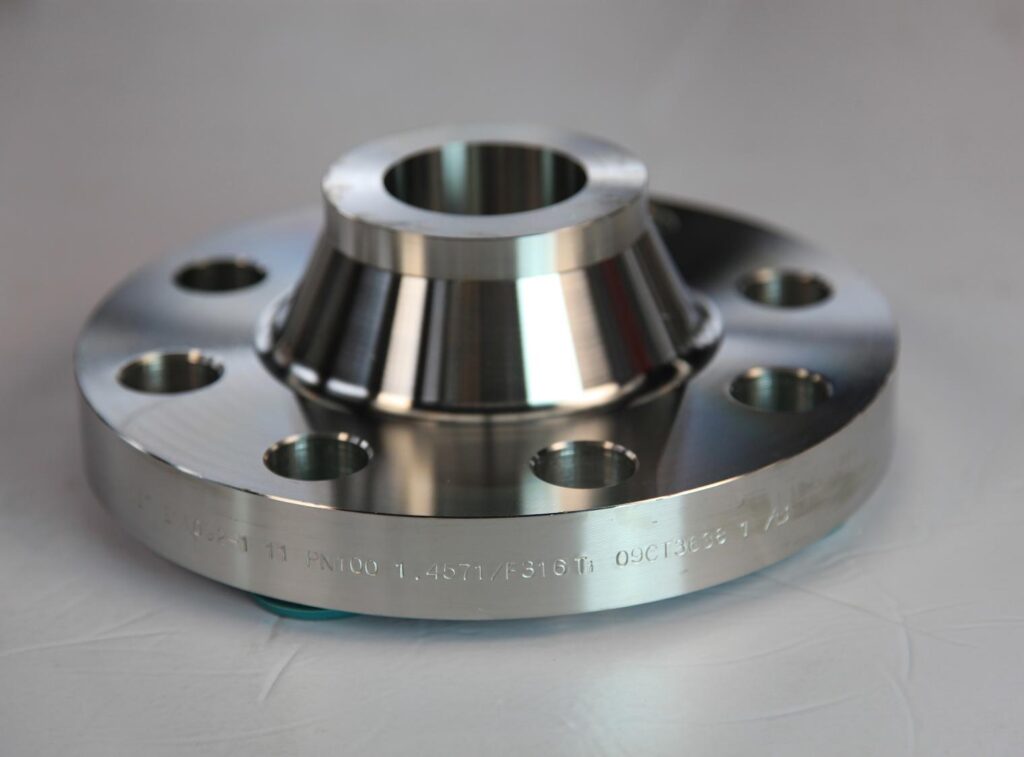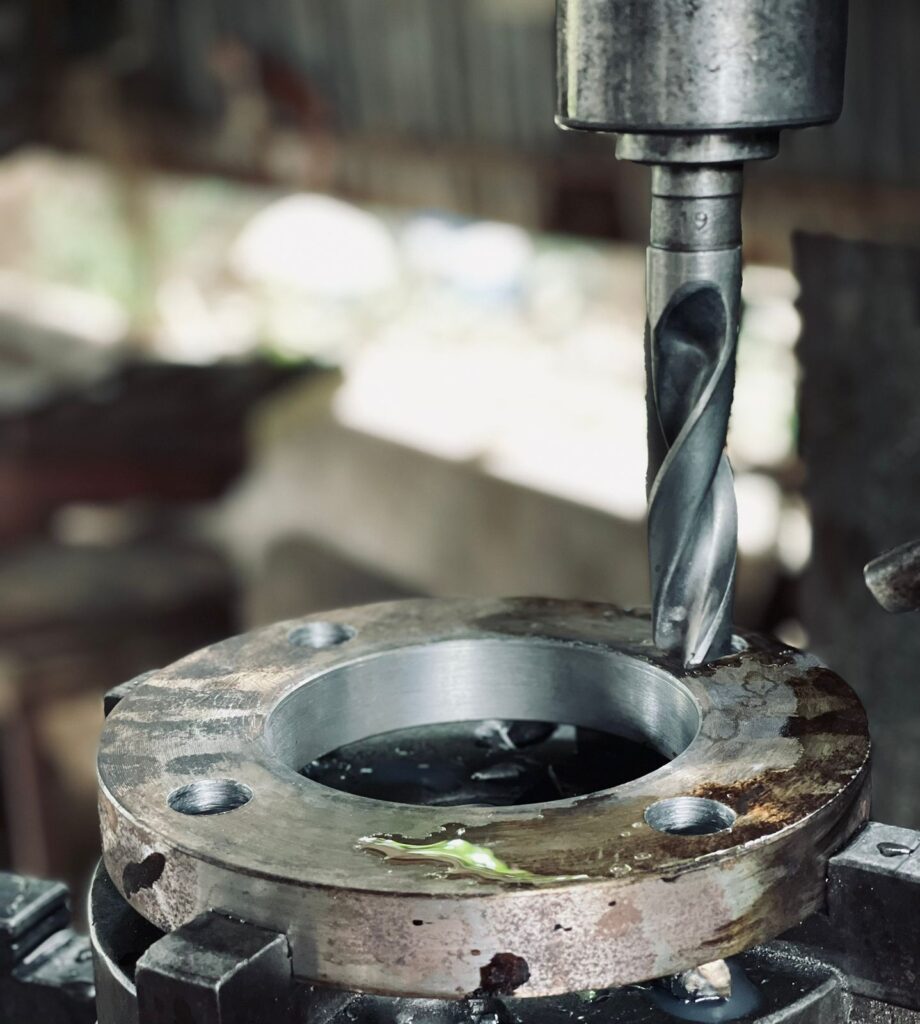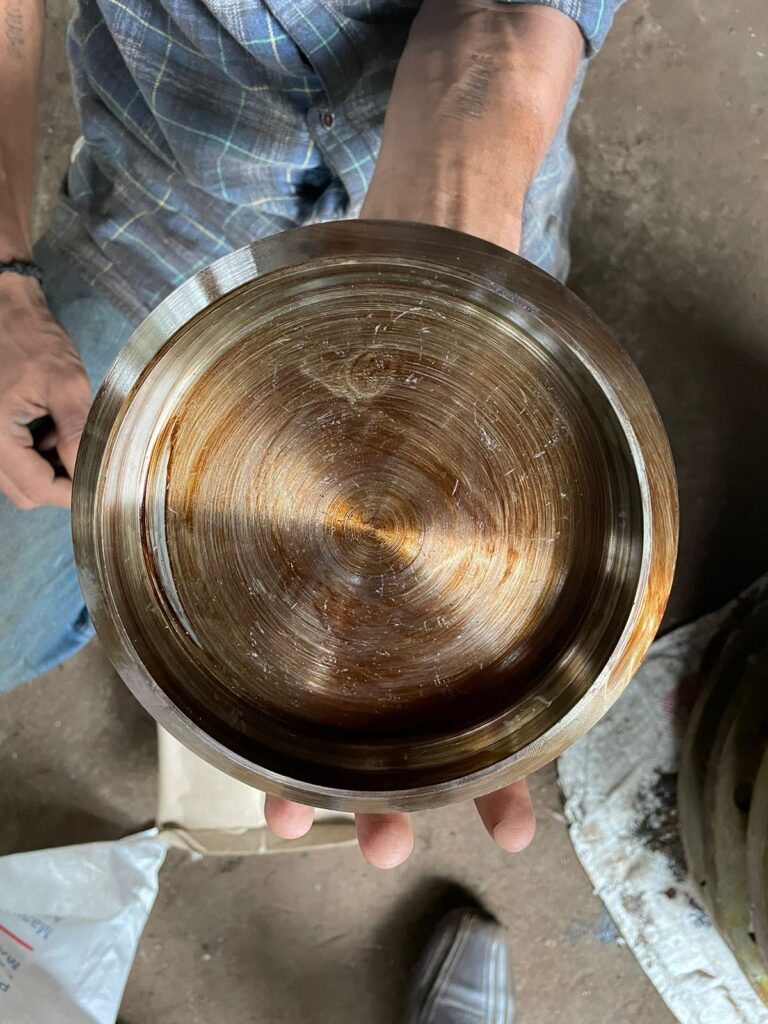SS 316 Flanges — Flange Manufacturer Mexico
Stainless Steel 316 flanges are high‑performance piping components valued for superior corrosion resistance, strength, and formability. As a flange manufacturer in Mexico, we produce SS316 flanges to international standards, with multiple face types and pressure ratings, full testing, and material traceability for petrochemical, food & beverage, pharmaceutical, water treatment, power, and general industrial projects across Mexico and export markets.

Why SS 316 Flanges?
- Corrosion resistance: Better pitting and crevice resistance in chloride environments (seawater, brines) due to Mo addition.
- Versatility: Available as weld neck, slip‑on, blind, socket weld, threaded, and lap joint.
- Fabrication friendly: Excellent weldability and formability for custom fabrication.
- Appropriate cost: Higher performance than 304 for chloride exposure while remaining cost‑effective vs. exotic alloys.
Standards & Material Specifications
- Base material: SS 316 (UNS S31600); SS 316L (UNS S31603) low‑carbon variant available.
- Common specs: ASTM A182 F316 (forged), ASTM A240 (plate).
- Dimensional standards: ASME B16.5 (NPS 1/2″–24″), ASME B16.47, EN 1092, JIS.
- Pressure classes: 150, 300, 600, 900, 1500, 2500 (per ASME).
Product Range
- Types: Welding Neck, Slip-On, Blind, Socket Weld, Threaded, Lap Joint.
- Face styles: Raised Face (RF), Flat Face (FF), Ring Type Joint (RTJ).
- Pressure classes: 150#, 300#, 600#, 900#, 1500#, 2500# (per ASME B16.5).
- Sizes: 1/2″ up to 24″ (B16.5) and larger per B16.47/EN 1092.
- Finish: Mill finish, polished, or bead-blasted as required.
- Certification options: EN10204 3.1/3.2, Mill Test Certificate (MTC), Material Test Report (MTR) available for manufacturer in Mexico
Mechanical & Chemical Typical Data (SS 316 / ASTM A182 F316)
Note: Values shown are typical ranges; final delivered material should be validated via MTC/MTR.
| Chemical composition (wt%) — C | ≤ 0.08 |
| Chemical composition — Cr | 16.0–18.0 |
| Chemical composition — Ni | 10.0–14.0 |
| Chemical composition — Mn | ≤ 2.0 |
| Chemical composition — Si | ≤ 1.0 |
| Chemical composition — P | ≤ 0.045 |
| Chemical composition — S | ≤ 0.03 |
| Chemical composition — Mo | 2.0–3.0 |
| Density | ~8.00 g/cm³ |
| Tensile strength (ultimate) | 515–720 MPa (typical forged range) |
| Yield strength (0.2% offset) | ~205–310 MPa |
| Elongation (in 50 mm) | ≥ 40% (typical) |
| Hardness (HRB) | ~70–95 |
Comparison: SS 316 vs SS 304
| Aspect | SS316 (benefits) | SS304 / SS304L (notes) |
| Corrosion resistance | Superior general corrosion and notably better resistance to pitting and crevice corrosion in chloride-containing environments (seawater, brines, chlorides). | Good general corrosion resistance; 304L offers improved resistance to intergranular corrosion after welding due to lower C. |
| Alloying | Contains Mo (≈2–3%) which enhances crevice and pitting resistance. | No Mo; 304L has reduced C (≤0.03) to avoid carbide precipitation. |
| Weldability | Welds well; Mo gives better post-weld corrosion resistance than 304. 316L (low C) further reduces carbide precipitation risk. | 304 welds easily; use 304L for heavy gauge weldments or when post-weld corrosion resistance is required. |
| Strength & toughness | Comparable strength to 304; good toughness at elevated temperatures and cryogenic service. | 304 has similar mechanical properties; 304 (higher C) can offer slightly higher strength than 304L. |
| Applications where preferable | Marine, chemical processing, desalination, chloride-exposed environments, biomedical implants (in some cases), and any service needing higher pitting/crevice resistance. | Food processing, general food & beverage, architectural, and when welding thick sections use 304L. |
| Cost & availability | Typically more expensive than 304 due to Ni and Mo content; widely available. | Generally less expensive; 304L slightly costlier than 304 but still cheaper than 316. |
| Recommendation (practical) | Choose SS316 (or 316L) when chloride exposure, pitting/crevice risk, or superior post-weld corrosion resistance is critical. | Choose SS304 for general use where chlorides aren’t a concern and slight extra strength is desired; choose 304L for heavy weldments or when avoiding intergranular corrosion after welding. |
Manufacturing & Quality Controls

Packaging & logistics (Mexico)
- Export‑grade packing: VCI wrap, desiccants, wooden crates/pallets; secure container lashing.
- Marking: part & heat numbers, material, size, class, manufacture date.
- Shipping terms: EXW, FOB (Mexican ports), CFR/CIF, DDP and project logistics available; consolidated sea freight or expedited air options.
Testing, certification and export documentation
- PMI / chemical composition check (for material verification).
- Hardness testing (HRC/HV) for heat-treated alloys.
- Radiographic testing (RT) or ultrasonic testing (UT) for critical pressure classes.
- Positive Material Identification Certificate (3.1/3.2), MTRs.
- Hydrostatic test of welded assemblies where applicable.
- Third-party inspection (TPI) by client-approved agencies (ABS, BV, DNV, Lloyd’s, SGS).
Packaging & Export Readiness
- Protective packaging: Individual wrapping of SS316 flanges is available on request, wooden crates or pallets with corrosion inhibitors and desiccants.
- Documentation: Commercial invoice, packing list, bill of lading, MTC/MTR (EN 10204 3.1/3.2), test reports, export/import certificates, and COO (certificate of origin).
- Incoterms: Offer EXW, FOB, CFR, CIF depending on customer preference.
- Logistics: Sea freight consolidation for pallets/containers; expedited air shipments for urgent small orders.

Quality assurance & traceability
- Heat-to-part traceability recorded; unique serial/heat numbers laser-etched.
- Full MTRs (ASTM/EN) and 3.1/3.2 certificates issued by default.
- Welding records (WPS/PQR), NDT logs and inspector sign-offs available.
- Continuous improvement via process monitoring and internal audits.
Applications & Industries
- Petrochemical and refineries (process piping, heat exchangers).
- Food & beverage (sanitary piping, hygienic flanges).
- Pharmaceutical (process systems requiring corrosion resistance).
- Water treatment and desalination.
- Power plants (balance-of-plant piping).
- General industrial and structural manufacturers requiring flanges in Mexico.
Commercial Considerations for Buyers
- MOQ (minimum order quantity): State your standard MOQs and note flexibility for stocked items.
- Lead times: Typical 4–8 weeks depending on size and certification requirements; expedite options for stocked SKUs.
- Pricing factors: Material market price (Ni & Cr), flange type, size, pressure class, testing/certification level, and finish.
- Sample policy: Offer sample pieces or small trial lots for new buyers; provide sample MTCs.
Export Data Table
| Parameter | Typical Export Range / Options | Notes for Exporters |
| Sizes supplied | 1/2″–24″ (ASME B16.5); larger on request | Stock common sizes for faster exports |
| Pressure ratings | 150#–2500# | Match buyer spec (ASME or EN) |
| Material specs | ASTM A182 F316, ASTM A240, UNS S31600 | Include SS 316L (ASTM A182 F316L) as option |
| Face types | RF, FF, RTJ | RTJ for high-pressure/high-integrity applications |
| Surface finish | Mill, 1B, 2B, polished | Sanitary markets often need polished finishes |
| Testing | PMI, Chemical, Mechanical, UT/RT, Hydro | Provide MTC EN 10204 3.1/3.2 on request |
| Packaging | Corrosion-inhibitor wrap, wooden crate | Export-grade packaging prevents transit damage |
| Certifications | ISO 9001, PED, NORSOK (if applicable) | Tailor certifications per target market |
| Lead time | 2–8 weeks typical | Stocked items <2 weeks; custom forged longer |
| Payment terms | T/T, L/C at sight, CAD | Offer competitive payment terms for new buyers |
Request a quote
For firm quotes: provide required NPS, pressure class, material grade, face type, quantity, and destination port/terms